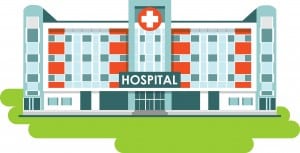
So, what is the NHS?
As a prospective applicant to a UK medical school, you are not only choosing what and where you would like to study for the next 5 or 6 years, but you are also signalling your commitment to becoming a doctor. Currently, the only employer when you start work as a doctor is the NHS. But what is the NHS?
Well, let me answer you question! This blog outlines what you need to know in order to answer that ‘what is the NHS?’ question. Plus, it helps to know a bit about the organisation that you could be dedicating the rest of your working life to!
Basic facts
- Funded through general taxation
- Founded in 1948
- Universal and free at the point of use
- The budget for the NHS in England in 2015/16 is £116.4 billion.
- Employs more than 1.6 million people, putting it in the top five of the world’s largest work forces together with the US Department of Defence, McDonalds, Walmart and the Chinese People’s Liberation Army.
Funding
Money that the government receives through general taxation is divvied up between different ministerial departments, such as the department for Education. A large chunk of this money goes to the Department of Health. The aim of the Department of Health is to provide strategic leadership for public health, the NHS and social care in England.
What is the NHS England?
NHS England is by far the biggest section of the UK NHS.
The roles of the NHS in England include:
- overall responsibility for planning and delivery of care and for improving health outcomes.
- oversees the operation of clinical commissioning groups (CCGs)
- allocates resources to CCGs
- commissions primary care and specialist services
What are CCGs?
CCGs are clinically led statutory NHS bodies responsible for the planning and commissioning of healthcare services for their local area.
Commissioning is the process of procuring or obtaining health services through a specialised process of assessing the health needs of your local population, planning these services and acquiring them from a provider of those services. Those services are then monitored to ensure they meet the health needs of the population.
CCG members include GPs and other clinicians such as nurses and consultants. They are responsible for about 60% of the NHS budget and commission most secondary care services such as:
- planned hospital care
- urgent and emergency care (including out-of-hours)
- most community health services
- mental health and learning disability services
CCGs can commission any service provider that meets NHS standards and costs. These can be NHS hospitals, social enterprises, charities or private sector providers. However, CCGs must take into consideration both National Institute for Health and Care Excellence (NICE) guidelines and the Care Quality Commission’s (CQC) information about the quality of care provided.
‘Arms length bodies’
There are also a number of independent ‘arms length bodies’ of which you should be aware including NICE, SIGN in Scotland, Public Health England and the Care Quality Commission which monitors and ensures health service providers are up to scratch.
The structure of the NHS is incredibly complex and we have only touched upon the basics.
For more information visit:
The King’s Fund
http://www.kingsfund.org.uk/sites/files/kf/media/nhs-structure-2015.pdf
NHS England
http://www.nhs.uk/NHSEngland/thenhs/about/Documents/simple-nhs-guide.pdf
NHS Scotland
NHS Wales
http://www.nhsdirect.wales.nhs.uk/
NHS Northern Ireland
